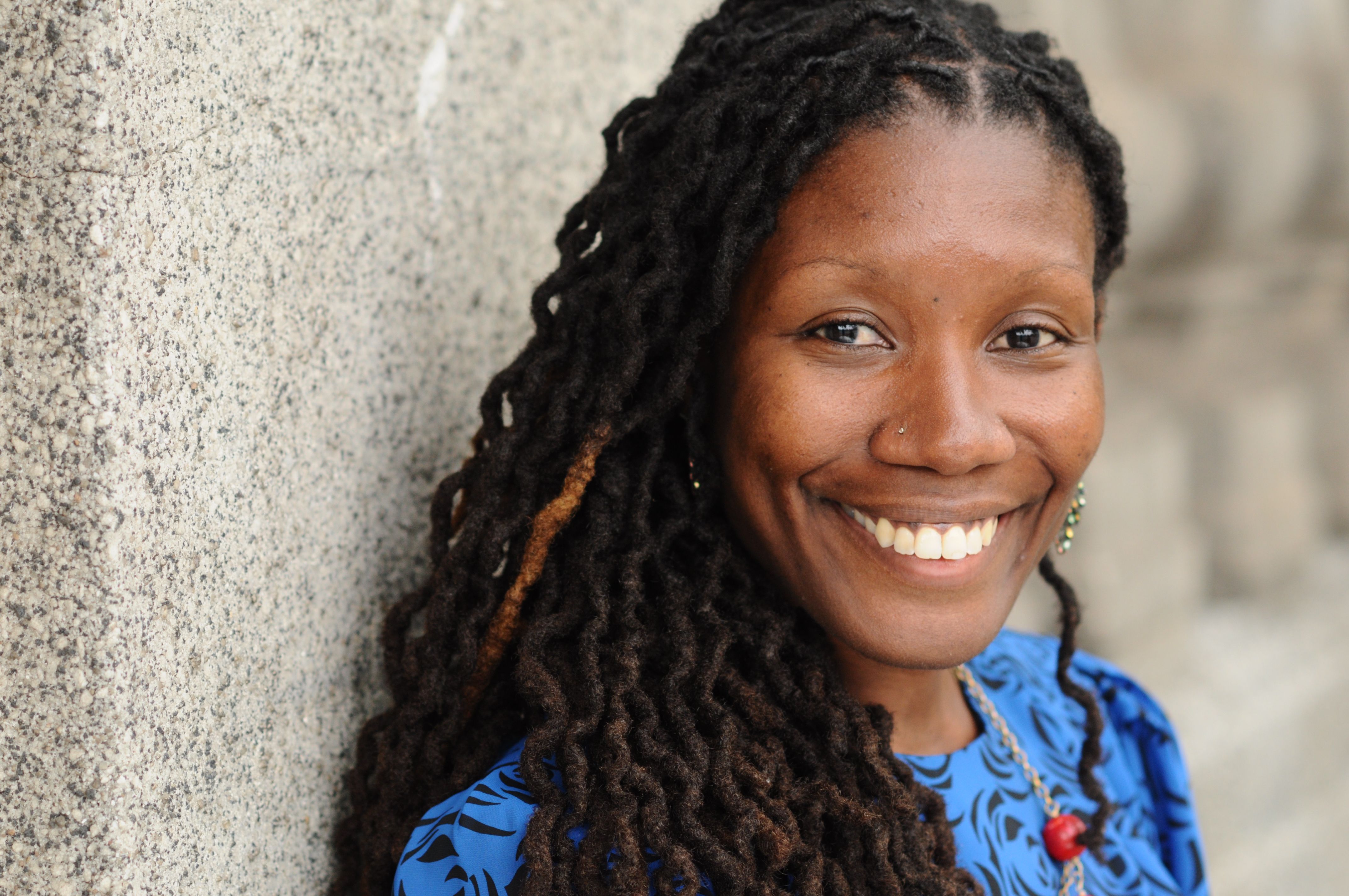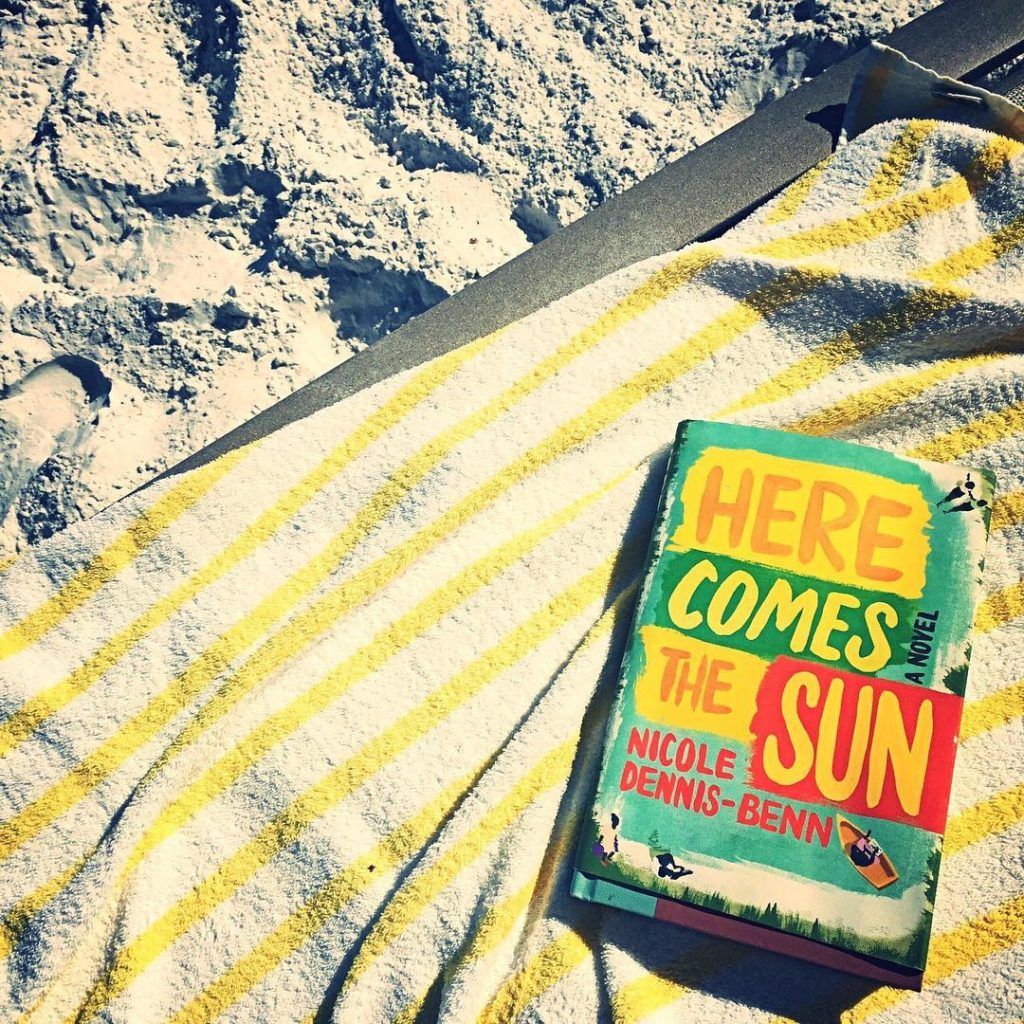Nicole Dennis-Benn’s Debut Novel is a Love Letter to Jamaica

Jamaican-born author Nicole Dennis-Benn recently released her debut novel, Here Comes the Sun, to much critical acclaim. The book delves deep into a Jamaica rarely seen by tourists—one that includes exploitation, classism, and sexuality. In an email interview with Outpostings, New York-based Dennis-Benn discussed the book and where she finds her happy place when visiting Jamaica. Here, she shares her personal tips on how visitors can have a positive impact on the community and why Kingston will always have a special place in her heart.
Why did you decide to write about the “not so sunny” aspects of Jamaica for Here Comes the Sun?
Here Comes the Sun is a love letter to Jamaica—my attempt to preserve her beauty by depicting her flaws. I have complicated feelings for my home country: love, because it’s where my childhood memories are buried and where my family still resides; and sadness, because I resent the reasons why I felt I had to leave the island in the first place.
Upward mobility in Jamaica is extremely difficult, which is why a lot of working-class Jamaicans leave. For the wealthy, it’s definitely a “sunny” paradise in that there is more access—more time and expendable income to revel in the beauty of our island. I chose to delve into such disparities—disparities of class, race, and gender—using three working-class Jamaican women whose main purpose is survival in a country where they are invisible, pushed to the margins of society and silenced.
My aim was to tell this side of our story—the reality behind those grinning smiles; the desperation of those locals willing to give their bodies for this month’s rent or light bill or school fee; the lengths they have to go to hide their same-sex attractions; the motivation to bleach their skin; the reliance they have on tourists to make “Every t’ing Irie”.
A false perception of our island has the ability to do serious harm in the long run—an island portrayed as beautiful with happy inhabitants is certainly grounds for exploitation. It’s my responsibility as an artist to dispel the myth and preserve our country’s dignity. James Baldwin once said, “I love America more than any other country in this world, and, exactly for this reason, I insist on the right to criticize her perpetually.” I feel the same way about Jamaica.
The downside of the tourism industry, homophobia and classism are heavy issues. Do you have suggestions for travelers hoping to have a positive impact on Jamaica?
One hotel clerk mentioned to me that most tourists would rather have their vacation in our beautiful country without seeing the people. I knew then that I had to tell the story of the people who didn’t get seen.
I’d encourage visitors to go beyond the manicured resort areas. Be knowledgeable of our culture and be open to learning more about our people and history. Jamaica is not only land and beaches and weed, but a country full of culture, history, and beautiful, complex people.
In Kingston, I’d suggest visiting the National Gallery to check out more of our art; attending a National Dance Theatre Company concert at the Little Theatre; or a play at Center Stage. There is also Kingston on the Edge—which is a celebration of our food, music, and art—and Kingston Book Festival.
In the craft markets you can find poorer artists, many of whom have created masterpieces with their hands. Because education isn’t free and many poor Jamaicans end up dropping out of school way too early to apply for tertiary education, they end up learning trades on their own to survive. So you’d never find their works in the National Gallery, where I personally think they belong.
There is also Calabash Literary Festival in St. Elizabeth where local and international writers share the stage.
Image via Nicole Dennis-Benn Instagram
The book touches on a same-sex relationship, and we know that Jamaica is far from LGBT-friendly. What has been the reception in Jamaica to “Here Comes the Sun,” so far?
I have been getting positive feedback. Many Jamaicans are connecting with the other themes in the book—identity, class, race, love, belonging [but not the same-sex relationship].
In an interview with the Los Angeles Review of Books I explained that, as a writer, I’m content with readers connecting to the human experience. My hope is that people will see Margot and Verdene’s relationship as a beautiful one—one where Margot finds herself, but for reasons she cannot control, loses herself, too. This is something that anyone who has ever experienced love and loss can identify with. As individuals—regardless of who we are and where we’re from—we’re socialized to respect fear more than our own hearts. It materializes into shame when we feel we’ve veered away from what is expected of us. Once we overcome those restrictions, we’ll realize that we are free—free to love, free to be, and most importantly, free to change.
There seem to be some parts of you in multiple characters. Was that a conscious choice, and/or is there one character you relate with the most? Please explain.
In order to write my characters, I must inhabit them, so I relate to all of them. Thandi is an embodiment of my experience as a working class, dark-skinned girl at an elite high school, a girl who yearned to be accepted by the upper-class girls. Through Margot I explored the pain I felt as a working-class Jamaican yearning to own a piece of paradise, though instinctively knowing that it doesn’t belong to me. I had mentioned in a recent New York Times interview that Margot is my heroine. Delores is the voice of our post-colonial scars, the voice I grapple with each day feeling the unworthiness as a black woman in society; a voice I defy in this very moment, but a persistent voice nonetheless. Verdene Moore, like myself, is someone returning to her homeland, claiming a country that doesn’t claim her back.
You’ve spoken of writing as being perceived in Jamaica as a “hobby” reserved for the privileged classes. But now Jamaican authors like yourself are being praised for their works internationally and on the island more. Could this incite a change in the mindset regarding literature as a profession?
This is a layered question that warrants a layered response. Surely, it would be great to see more of us writing our stories. But it takes more than the promise of praise and fortune to stick to the daily practice. Like any other art form, it’s highly subjective; and if you don’t have the passion and perseverance, then it’s easy to give up and think that your story or voice doesn’t matter. One must have the talent as well as the calling to write. Jamaica can nurture writers in many ways. We need to give educational opportunities to every child on the island. Our education isn’t free—there are poor and working-class children unable to afford school fees, school uniforms, and books. If children aren’t given the basic education and opportunities to thrive, then how can they see literature as a prospect? How can they tell their stories if literacy is an issue?
The arts world is considered a luxury, especially for those from working-class backgrounds who feel they need to pursue practical careers—law, medicine, business—to pull their families out of poverty. Thandi, an artist at heart whose family pressures her to become a doctor, is the very embodiment of this struggle. It’s such a common narrative for the Caribbean youth, and it’s hard to break out of that mentality. It took me a decade.
As for the school system, it’s surely not too late to incorporate more Caribbean literature into the curriculum—to ensure that we give Jamaican children books to read by fellow Jamaicans. What was missing in the books I devoured as a child was me and my culture. I never knew how to turn the pen inward until I began to crave reading books with characters like myself. Toni Morrison and Edwidge Danticat were the first books I read with complex black female protagonists. We can empower Jamaican children by giving them books where they see themselves on the page, which will inspire them to tell their own stories.
What authors have been influential to your writing?
Definitely Toni Morrison. She taught me to reveal a character’s humanity no matter how horrible that character might be. She also gave me permission to express black women’s sexuality on the page. I also learned much from Zora Neale Hurston, who was a pioneer in the use of dialect to convey her characters’ authenticity. Other writers who have inspired me include Edwidge Danticat, Alice Walker, Chimamanda Ngozi Adichie, Paule Marshall, Jamaica Kincaid, Elizabeth Strout, Zadie Smith, ZZ Packer, Julie Otsuka, and Jhumpa Lahiri.
Where is your happy place when visiting Jamaica?
I go to Kingston. I was born and raised there, so it is important for me to spend time with close friends and family. Kingston is also the heart of our culture with art openings, plays, concerts, live music, and lectures. My first stop is usually to Devon House for ice-cream; Emancipation Park for an evening stroll or morning exercise; Port Royal or Hellshire Beach for fish and bami; and Red Bones Blues Café for live music and poetry. My wife fell in love with Kingston, too. I guess she sees it as a part of me.
Follow Dennis-Benn on her website and Instagram!
This interview has been edited by Outpostings for clarity.
